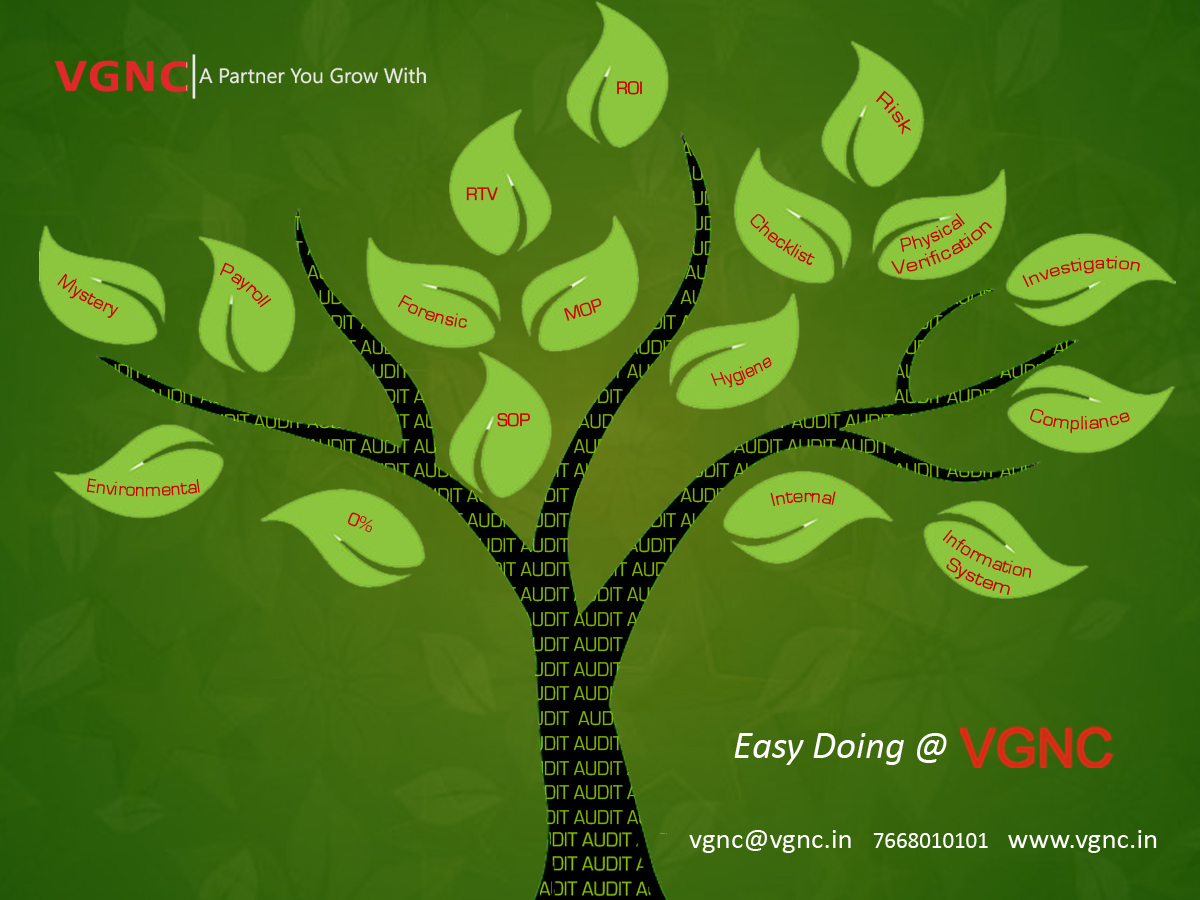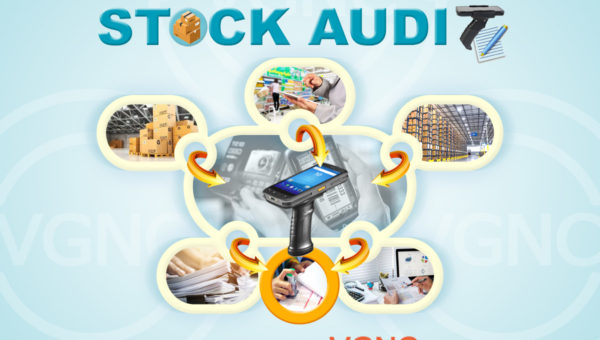Types of Audits:
The audit is an art of systematic and independent review and investigation on certain subject matter including financial, physical, reports, operational, revenues and expenses etc.
The audit is classified into many different types and levels of assurance according to the objectives, scopes, purposes, and procedures of how auditing is performed.

Types of audit under VGNC
- RTV Audit- RTV Audit is the management of return of goods to the vendor from stores. It is critical and it demands tight control and accuracy at multiple points including proper packaging and transporter control. VGNC has developed a fool proof system to ensure the return of goods from the store to the vendor.
- SOP Audit- A Standard Operating Procedure is step by step Instructions compiled by an organization to help staff carry out routine operation. SOP Audit helps to identify design gaps in the overall business process.
- Investigation Audit- Investigative Auditing involves the examination of accounts and the use of accounting procedures to discover financial irregularities and to follow the movement of funds and assets in and out of organisations.
- Environmental Audit- An environmental audit is a type of evaluation intended to identify environmental compliance and management system implementation gaps, along with related corrective actions. In this way they perform an analogous (similar) function to financial audits.
- Mystery Audit- Mystery audit is an audit that plays vital role in gauging the customer experience at the retail stores. It offers the service for an organization to assess and monitor the quality of services provided from the point of view of the customer.
- Hygiene Audit- In Hygiene audit the company wants to check whether the company policies in terms of distribution are followed and all the schemes etc. are properly communicated by the distributor to the retail outlets.
- Internal Audit- The role of Internal Audit is to provide Independent assurance that an organization’s risk management governance and Internal Control process is operating effectively.
- Compliance Audit- A compliance audit is a comprehensive review of an organization’s adherence to regulatory guidelines. Audit reports evaluate the strength and thoroughness of compliance preparations, security policies, user access controls and risk management procedures over the course of a compliance audit.
- Checklist Audit- The checklist for any internal quality audit is composed of a set of questions derived from the quality management system standard requirements and any process documentation prepared by the company.
- Forensic Audit- A forensic audit is an examination and evaluation of a firm’s or individual’s financial records to derive evidence that can be used in a court of law or legal proceeding.
- MOP Audit- MOP audits are used for two purposes – Measuring pricing for own products to drive pricing discipline, or measuring pricing of competitors Products.
- Zero Percent Audit- This Audit is conducted in relation to the some product duly financed by Finance Company, whether T&C of finance for that particular product are complied or not.
- Physical Verification – Physical verification of assets is a process conducted to make sure that the assets of an entity actually exist. Our approach to verification is to conduct a line-by-line reconciliation of assets accounting records to assets found during the physical inventory taking process.
- HR Audit- A Human Resources Audit (or HR Audit) is a comprehensive method (or means) to review current human resources policies, procedures, documentation, and systems. This thorough review helps to identify needs for improvement and enhancement of the HR function
- Information System Audit – In this we’re examination of the management controls within an Information technology (IT) infrastructure.
- Risk Audit- Risk audit is the examination and documentation of the effectiveness of risk responses in dealing with identified risk and their root causes, as well as the effectiveness of the risk management process. Conducting a risk audit is an essential component of developing an event management plan
- ROI Audit- ROI is a performance measure used to evaluate the efficiency of an investment or compare the efficiency of a number of different investments.
You can contact us or send us your query, for more knowledge you can read our case studies



